Can My Family Be Involved with IOP Programs in PA?

Understanding IOP Family Involvement
Intensive Outpatient Programs (IOP) in Pennsylvania provide an essential opportunity for families of individuals dealing with mental health and substance use disorders to play a proactive role in treatment and recovery. By intertwining family involvement with clinical interventions, these programs foster environments where emotional support, understanding, and healthier family dynamics become key components of the recovery journey. In this article, we delve into how families can be involved in IOPs, the benefits of this involvement, and the kinds of support systems available to families within Pennsylvania’s robust outpatient treatment landscape.
Understanding Intensive Outpatient Programs
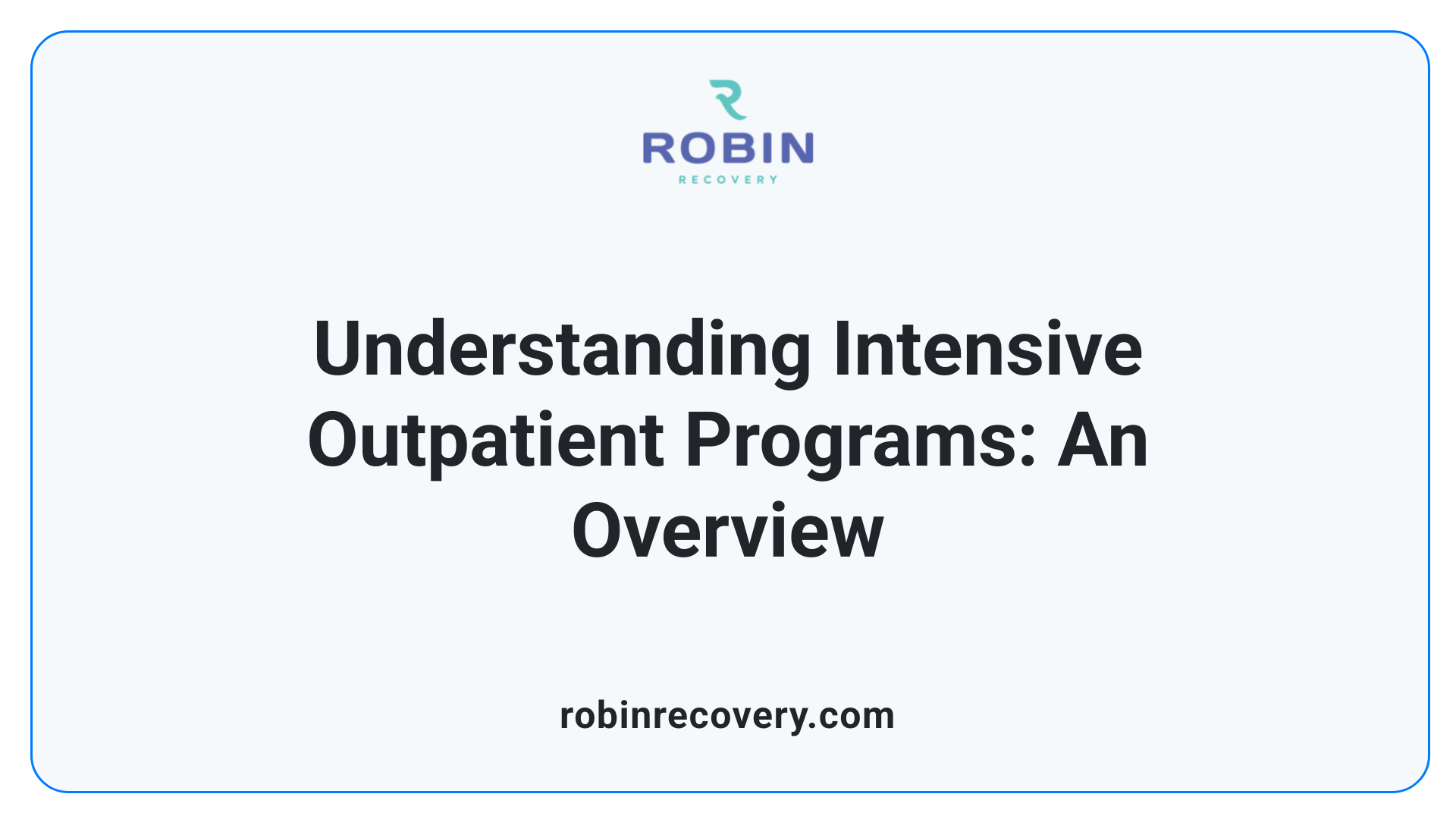
What is Intensive Outpatient Program (IOP) and how does it function?
Intensive Outpatient Programs (IOPs) are designed for individuals needing structured support for mental health and substance use disorders without the requirement for hospitalization. They provide a flexible treatment option, typically allowing patients, including youth aged 8-18 years, to maintain their daily responsibilities such as schooling or work.
IOPs in Pennsylvania generally offer therapy sessions three hours a day, three days a week. These sessions focus on evidence-based therapies, including Cognitive Behavioral Therapy (CBT) and Dialectical Behavioral Therapy (DBT), which address various mental health issues like depression and anxiety.
Types of therapies involved
IOPs incorporate several therapeutic approaches to ensure comprehensive care. Key components include:
Type of Therapy Description Purpose Individual Therapy One-on-one sessions tailored to the patient's needs Personalize recovery and address specific issues Group Therapy Led by a therapist, involves peer discussions Provides support and fosters community Family Therapy Engages family members in the treatment process Enhances communication and reinforces support Education Sessions Inform families about mental health and recovery Equip families to provide effective support
Family involvement within these programs is vital, fostering relationships and understanding among family members while contributing significantly to individual recovery successes. By engaging families in therapy and education sessions, IOPs help ensure that clients receive holistic support critical for long-term recovery.
Benefits of Family Participation in IOP
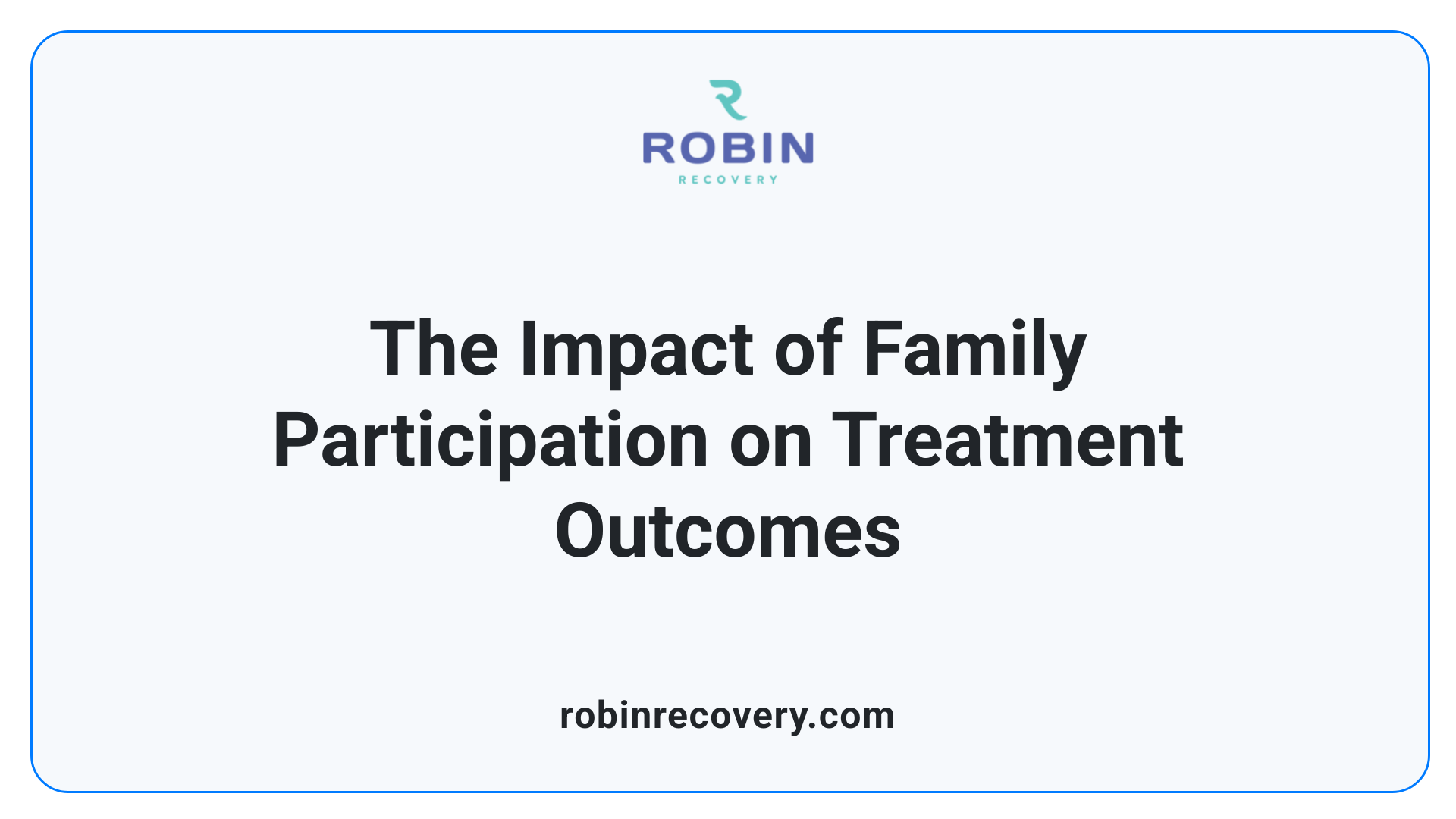
How does family involvement enhance treatment?
Family participation in Intensive Outpatient Programs (IOPs) boosts treatment effectiveness for both mental health and substance use disorders. One significant benefit is that families help improve treatment engagement and retention rates. When family members are actively involved, they create a supportive atmosphere that motivates individuals to seek and continue their treatment.
Counseling sessions tailored for families play a crucial role in facilitating healthier communication and coping strategies. These sessions allow family members to express their feelings openly, fostering an environment where individuals can feel safe to discuss their struggles. Addressing unhealthy family dynamics, like enabling behaviors, leads to better outcomes for everyone involved. The shared understanding gained through these programs can restore trust and strengthen relationships within the family.
What improvements can be seen in emotional support and communication?
Effective communication is paramount during the recovery process. Family therapy within IOPs equips family members with tools for better interaction, including active listening and setting clear boundaries. As a result, families experience improvements in emotional support, allowing them to engage in discussions that revolve around their loved one's recovery journey.
Moreover, family members often encounter similar challenges and emotions; connecting with others in educational workshops or support groups helps normalize their experiences. These resources enable families to gather insights into addiction, relapse prevention, and strategies for daily interactions, all of which contribute to a more nurturing environment essential for recovery. Through active family involvement, IOPs provide the groundwork for long-term recovery and emotional health.
Addressing Family Dynamics
How does an IOP address family dynamics in the treatment process?
Intensive Outpatient Programs (IOPs) effectively address family dynamics by integrating family therapy into their treatment framework. Typically offered 3-5 days a week, these family therapy sessions actively involve various family members. The focus is on enhancing communication patterns, resolving conflicts, and fostering a nurturing environment for recovery.
IOPs prioritize education for families about addiction and mental health challenges. This aspect plays a pivotal role in reducing stigma and enhancing understanding among family members, ultimately promoting a stable and supportive system crucial for long-term recovery. When families actively participate, there is often a noticeable increase in treatment engagement and retention.
Improving communication skills is fundamental in family therapy. Techniques such as active listening, open dialogue, and establishing clear boundaries are highlighted, which can help families navigate difficult conversations. These strategies can prevent enabling behaviors, which are detrimental to the recovery process. Additionally, when families learn to identify early warning signs of relapse, they can take proactive measures, contributing not only to the individual’s recovery but also to the overall health of the family unit.
By involving families in the treatment process, IOPs ultimately foster a more effective recovery environment. This multidimensional support is essential for addressing the complexities of addiction and mental health issues.
Support Systems and Resources for Families
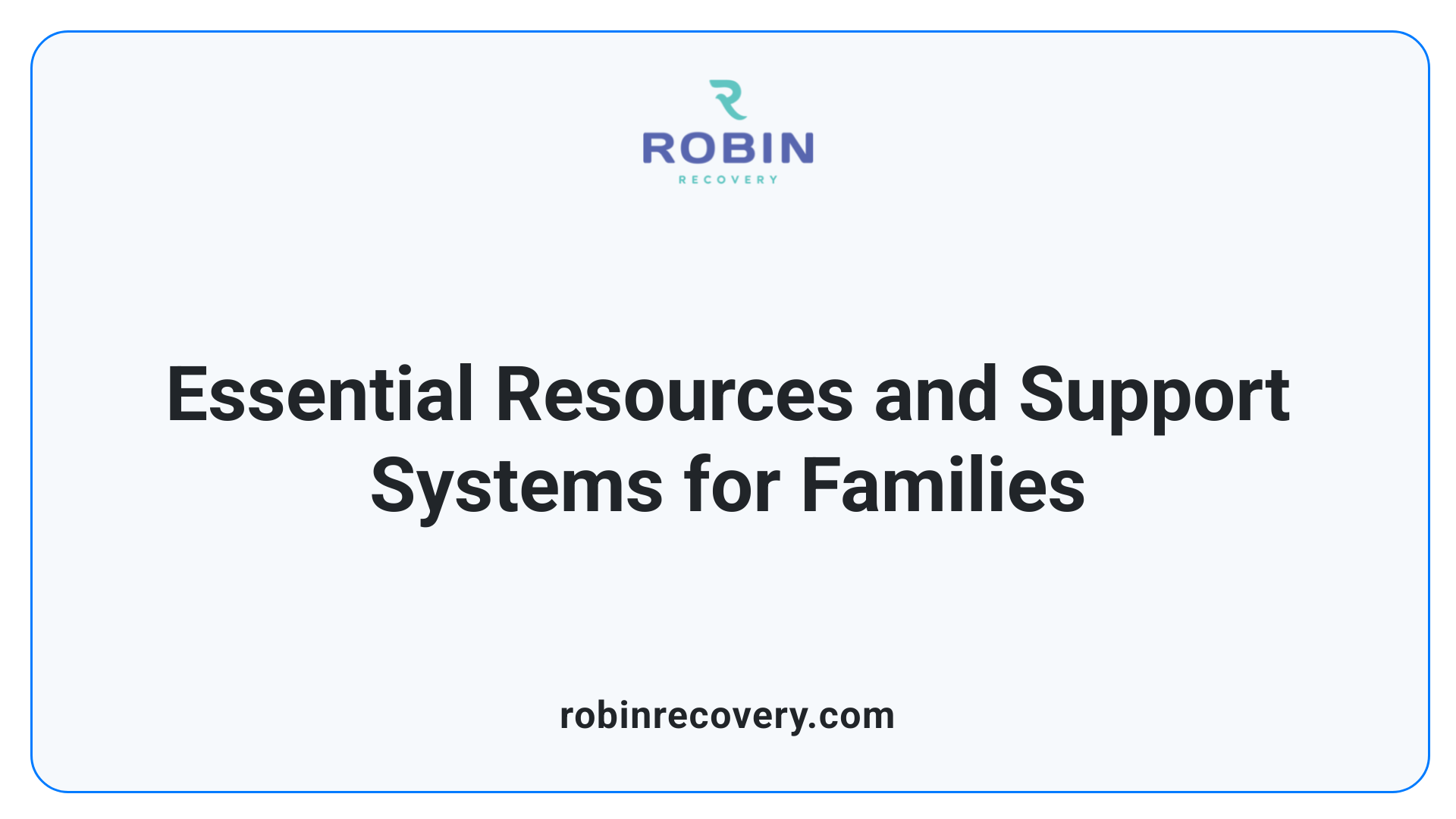
What resources and support systems are available for families involved in IOPs?
Families involved in Intensive Outpatient Programs (IOPs) have access to numerous resources and support systems designed to assist them during the recovery journey.
1. NAMI Family Support Group
The National Alliance on Mental Illness (NAMI) provides free, peer-led support groups that allow family members to share their experiences and challenges. These sessions foster a supportive environment where families can learn effective coping strategies and connect with others facing similar situations.
2. SAMHSA Resources
The Substance Abuse and Mental Health Services Administration (SAMHSA) offers valuable resources, including a National Helpline where families can receive guidance and locate mental health services in Pennsylvania. SAMHSA also provides a service finder that helps families identify local treatment options and support groups tailored to their specific needs.
3. Educational Materials
NAMI also publishes educational resources that help families understand mental health conditions and the intricacies of the recovery process. These materials equip families with knowledge about addiction and mental health issues, enabling them to provide more effective support to their loved ones.
Engaging with these support systems not only helps families cope with the challenges of addiction and recovery but also significantly contributes to the effectiveness of the treatment process for individuals enrolled in IOPs. By enhancing understanding and connection, families can play a crucial role in the recovery journey.
Family Support Impact on Treatment Outcomes
What impact does family support have on treatment outcomes in IOP settings?
Family support plays a crucial role in enhancing treatment outcomes in Intensive Outpatient Programs (IOP). Research shows that increased family involvement leads to reduced symptoms, better recovery rates, and lower hospitalization and relapse rates among patients. Programs that actively engage families not only improve caregivers' well-being but also help adolescents manage mental health challenges more effectively.
How does family involvement influence recovery rates and relapse prevention?
Individuals with substance use disorders (SUD) demonstrate higher treatment adherence and better recovery outcomes when supported by family and friends. Family support encourages open communication, addressing emotions related to substance abuse, and fostering an understanding of addiction, ultimately leading to a supportive environment for recovery.
Moreover, family therapy sessions within IOPs enable families to tackle co-dependency issues and develop effective strategies for relapse prevention. Educational workshops equip families with tools to recognize signs of relapse, fostering a proactive approach to maintaining recovery.
With this emphasis on family involvement, IOPs can create a more nurturing environment conducive to recovery. Integrating family support into treatment strategies significantly lowers healthcare costs and improves the quality of life for patients, underscoring the importance of family dynamics in the treatment process.
Benefits of Family InvolvementRole in RecoveryLong-term Impact Enhanced communication Improved treatment adherence Better quality of life Education about addiction Support in distress Lower relapse rates Rebuilding trust Family therapeutic support Sustainable recovery
Family Therapy as a Core Component
Role in treatment plans
Family therapy plays a significant role in Intensive Outpatient Programs (IOPs) in Pennsylvania. Incorporating family therapy into treatment plans helps families understand their loved one's challenges with addiction and mental health issues. By attending therapy sessions together, family members can learn effective communication strategies, address conflicts, and foster a supportive environment conducive to recovery.
Types of family interventions
IOPs typically include various interventions aimed at enhancing family dynamics. Common types of family interventions involve:
- Family therapy sessions: These sessions help families discuss emotions related to addiction and practice open communication.
- Educational workshops: These programs teach families about addiction, enabling behaviors, and signs of relapse, empowering them to support their loved ones effectively.
- Support groups: Connecting with other families facing similar challenges provides additional emotional resources.
Programs like Steps to Recovery and Arkview Recovery Center emphasize these interventions, promoting familial involvement, which enhances treatment outcomes. By engaging families in the recovery process, IOPs ensure a holistic approach that significantly improves the chances of long-term success.
Education Sessions for Family Members
What is covered in education sessions?
Education sessions in Intensive Outpatient Programs (IOPs) play a critical role in helping families understand addiction and mental health challenges. These sessions typically cover:
- Signs of Addiction: Families learn how to identify behaviors indicative of substance use disorders.
- Understanding Recovery: Education about the recovery process equips families with knowledge about what their loved ones are experiencing.
- Coping Strategies: Families are provided tools for dealing with stress, emotions, and communication issues that may arise.
How to Prevent enabling behaviors?
IOP education sessions also focus on preventing enabling behaviors that can hinder recovery. Key strategies include:
- Setting Boundaries: Learning to establish clear boundaries helps families avoid overextending themselves and facilitating unhealthy behaviors.
- Active Participation: Engaging in family therapy lets members express concerns and discuss enabling actions in a supportive environment.
- Promoting Independence: Encouraging loved ones to take responsibility for their recovery fosters self-efficacy.
Ultimately, education sessions empower families to support their loved ones constructively, reinforcing a healthier family dynamic that promotes recovery.
Eligibility for Family Involvement
Criteria for family participation
Family involvement in Intensive Outpatient Programs (IOPs) in Pennsylvania is encouraged for several reasons. To partake, families must typically meet a few eligibility requirements:
- Age Requirement: Family members must generally be over 18 years old to engage in sessions, though parents of minors can participate in family therapy for their children.
- Understanding the Process: Families should be willing to learn about addiction and mental health issues, which is integral to supporting their loved ones effectively.
- Openness to Communication: Families must be open to participating in discussions that promote healing and conflict resolution, essential components in therapy sessions.
Extent of involvement allowed
In IOPs, family members are typically encouraged to be actively involved through various means:
- Family Therapy Sessions: These sessions allow family members to address their emotions related to substance abuse, improving communication and understanding.
- Educational Workshops: Family members can participate in workshops designed to educate them on addiction, relapse signs, and how to avoid enabling behaviors.
- Support Groups: These provide an opportunity for families to share their experiences and learn coping strategies from others facing similar challenges.
In conclusion, most IOPs in Pennsylvania promote substantial family involvement, recognizing it as critical to enhancing recovery and treatment success.
Weekly Family Therapy Sessions
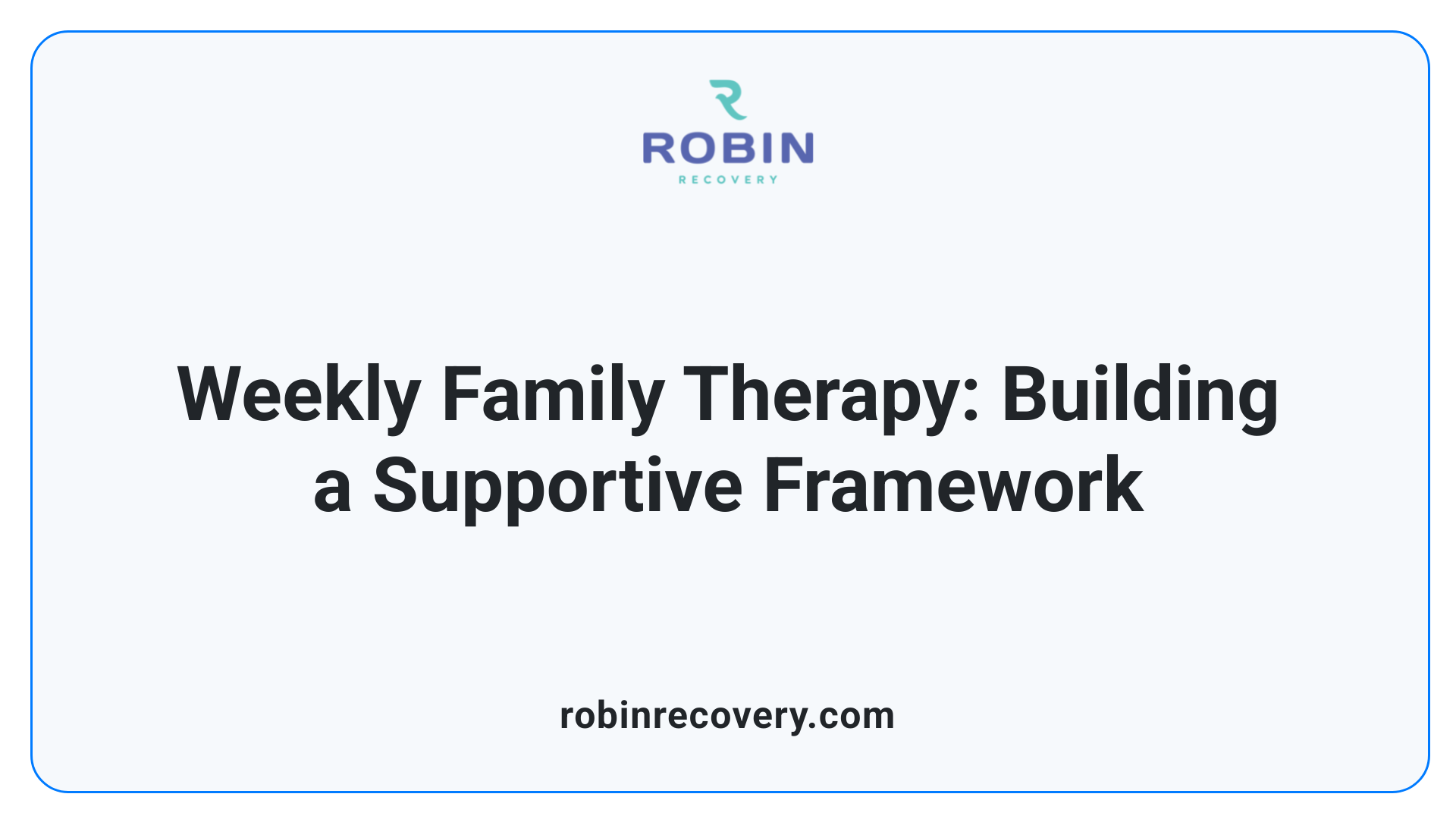
Scheduling and Structure
Weekly family therapy sessions are an integral part of Intensive Outpatient Programs (IOPs) in Pennsylvania. These sessions provide family members with the opportunity to meet regularly with therapists alongside their loved ones receiving treatment. Typically, families can expect to engage in these sessions for several hours a week as part of the structured therapy schedule.
Treatment facilities, such as the Steps to Recovery program, ensure these sessions are consistently available. The focus frequently revolves around understanding addiction, mental health challenges, and building effective support strategies. By incorporating family therapy, IOPs aim to strengthen familial bonds and support systems necessary for a successful recovery.
Communication Opportunities
Family therapy serves as a platform for improved communication among family members. It allows individuals to express their feelings, discuss stresses related to addiction, and resolve conflicts. Effective communication strategies—such as active listening and open dialogue—are often emphasized during these sessions, equipping families with skills to maintain healthy interactions.
Additionally, communication is structured daily between parents and counselors, keeping families informed and actively involved in the recovery journey. Through education programs, families learn to recognize signs of relapse and manage enabling behaviors, creating a supportive backdrop for their loved one's recovery.
Communication with Counselors
Daily Updates for Families
Regular communication between counselors and families is essential during the treatment process in Intensive Outpatient Programs (IOPs). Families receive daily updates that keep them informed about their loved ones' progress and challenges. This consistent information helps families stay engaged and provides insights into the therapeutic journey, ensuring that they understand the nuances of recovery.
Structured Communication Channels
Structured communication channels enable families to ask questions and express concerns effectively. Counselors often establish a framework for communication, allowing families to participate meaningfully in the process. For instance, scheduled weekly meetings may be arranged, providing an avenue for families to discuss their roles in the recovery and understand their loved one's experiences. This proactive approach not only fosters strong relationships between families and counselors but also reinforces a collaborative environment that enhances the overall treatment experience.
Exploring Insurance and Financial Assistance
Coverage Options
When considering Intensive Outpatient Programs (IOPs) in Pennsylvania, understanding insurance coverage is crucial. Many major health insurance plans, including Blue Cross Blue Shield, Cigna, and Aetna, often cover IOP services. This coverage significantly eases the financial burden of treatment for individuals and families seeking help for substance use and mental health disorders.
It's important for families to verify their insurance benefits to understand co-pays, deductibles, and other out-of-pocket costs associated with IOP. This process not only confirms what services are covered but also helps in planning treatment for loved ones effectively.
Financial Support for Families
In addition to insurance coverage, various financial assistance programs are available for families navigating the costs of IOPs. Many treatment centers offer sliding scale fees, based on income, which can make treatment more accessible. Non-profit organizations may also provide scholarships or grants that can be applied to treatment costs.
Families can also explore state-funded resources, local charities, and community support groups that assist with the costs of mental health treatment. Utilizing these financial supports can empower families to ensure their loved ones receive the necessary care without the overwhelming burden of expenses.
Utilizing FMLA for IOP Participation
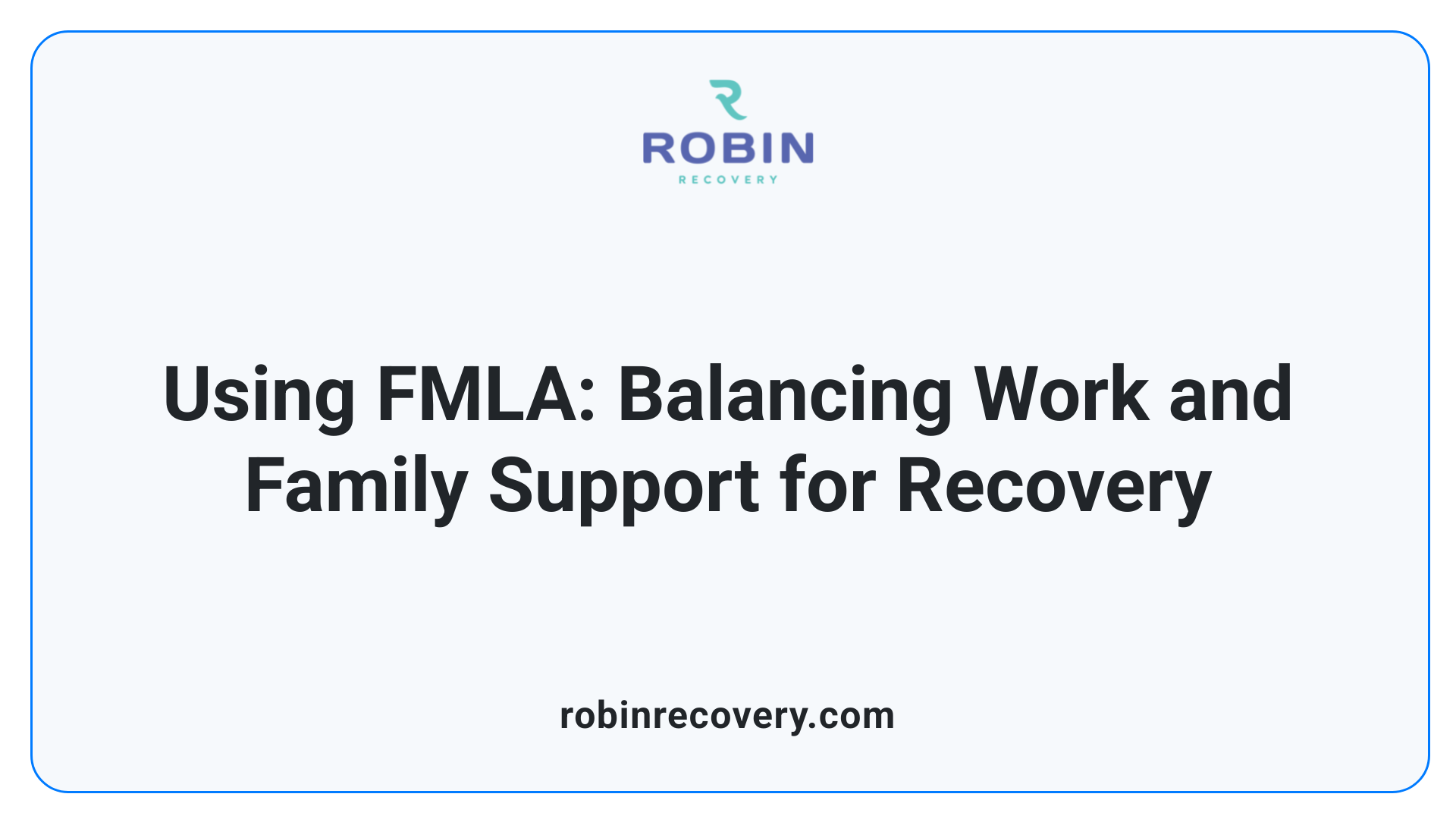
Can you use Family and Medical Leave Act (FMLA) for IOP?
Yes, the Family and Medical Leave Act (FMLA) can be utilized for participating in an Intensive Outpatient Program (IOP) if the program meets specified medical criteria. FMLA allows eligible employees to take unpaid leave for serious health conditions, which can include conditions addressed in IOP, such as substance use disorders and mental health issues.
FMLA eligibility
To qualify for FMLA leave, employees must meet certain conditions:
- Length of Employment: Must have worked for their employer for at least 12 months.
- Hours Worked: Must have logged at least 1,250 hours of service in the past year.
- Work Location: Must work at a location where the company employs 50 or more employees within 75 miles.
Using leave for IOP involvement
When using FMLA for IOP participation, employees should communicate with their employer regarding the need for leave. It's beneficial to provide the employer with medical documentation from the IOP that outlines the necessity of attendance. Effective documentation and open dialogue ensure that family members can fully support their recovering loved ones while maintaining their job protections.
FMLA offers critical support for families needing to engage in IOPs, fostering recovery while balancing work commitments.
Integrating Family in the Recovery Journey
Incorporating family involvement in Intensive Outpatient Programs in Pennsylvania stands as a cornerstone for successful treatment and recovery. By understanding the benefits, roles, and resources available for families in these programs, it becomes clearer how vital their participation is. From enhanced treatment adherence to improved communication and support systems, families in IOP can effectively contribute to the holistic recovery process of their loved ones. Through structured therapy sessions and educational materials, families are equipped to engage constructively, ensuring they remain active and empathetic participants in the healing process.
References
- Can My Family Be Involved with IOP Programs in PA?
- Can My Family Be Involved with IOP Programs in PA? - Talbh
- Family Involvement In PAs IOP Programs - Northstar Behavioral Health
- Mental Health Outpatient and Intensive Outpatient Program
- Mental Health Intensive Outpatient in Pennsylvania - IOP Program
- Intensive Outpatient Care (IOC) for Children and Teens
- Best Intensive Outpatient Programs in Pennsylvania - Recovery.com
- Substance Abuse Intensive Outpatient Programs: Assessing the ...
- YAP® Behavioral Health - Youth Advocate Programs
- Intensive Outpatient Program | Bucks County, PA
